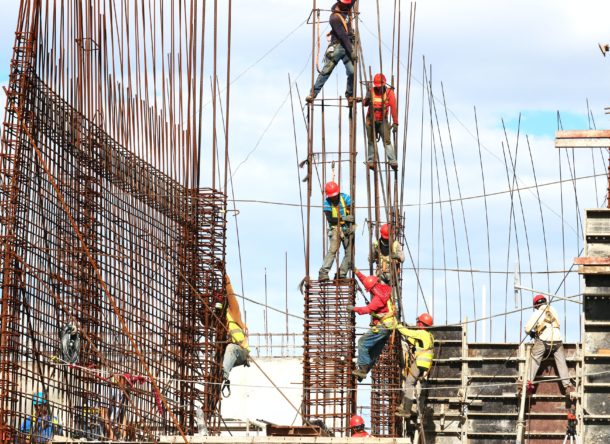Despite the effects of the pandemic, the price of rebar continues to fall for much of the world. Data from China suggest that exports of steel and ferrous materials rose by almost 30 percent in January and February 2021, underscoring a return to relative supply chain normality. And this increase in supply is leading to a glut in most parts of the world outside of the European Union. The rise in rebar production comes from major restarting of Chinese steel mills, particularly in the run-up to holiday and new year in mid-February.

Turkey, another major supplier of rebar, is also fueling the decline in the price for importers across Latin America, central Asia, North America, and the Far East. Turkish producers have a considerable stockpile of both scrap and excess production they intend to jettison global markets in April and the following months.
The effects of this input deflation may help get the industry restarted. Commentators believe that lower prices will encourage firms to restart projects after a long hiatus, helping them get back to normality faster.
However, international trade and supply issues will make it challenging for construction businesses, suppliers, and other firms in the chain to take full advantage. Because of COVID-19 restrictions and logistical concerns, border crossings are, on average, slower than they were in 2019.
Some industry players are, therefore, using a customs broker that looks ahead. The idea here is to outsource the task of getting goods into the country to a third-party organization that understands the rules. With an ally in place, importers will find it much easier to get the rebar that they need into the country in a reasonable time frame.
Currently, there are several ongoing investigations regarding rebar dumping on the international markets. Excess supplies from Russia and Oman are forcing mainstream channels to cut their prices in an attempt to respond. This, in turn, is cutting the overall prices on the market further – a boon for the construction industry, but a pain for those in the official supply chain.
Importers are now bracing themselves for potential anti-dumping investigations. Initially, these investigations will likely concern mainly Canada. However, over time, the scope of inquiries may grow. Other countries may have inadvertently imported rebar at dumping prices.
The likely result of this action will be to make rebar harder to import to certain parts of the world. In some countries, such as Canada, border authority agencies are already looking for ways to restrict imports and apply heavy duties on anyone importing them from overseas.
Unfortunately, it is still not clear whether falling rebar prices are a good thing for construction specialists. If the authorities suspect foul play, then they are much more likely to impose fines and duties that ultimately push the cost of rebar back up. The advice for small and medium-sized businesses, therefore, is to take advantage of the situation as it presents itself now. Domestic mills are only able to supply a small percentage of total rebar demand in the West.




Join the conversation: